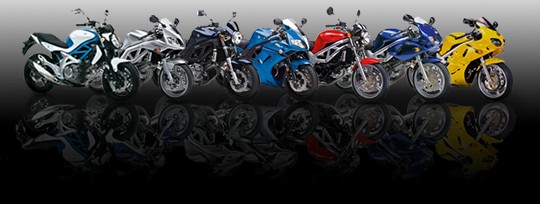 |
 |
| Bikes - Talk & Issues Newsworthy and topical general biking and bike related issues. No crapola! Need Help: Try Searching before posting |
 |
|
|
Thread Tools |
|
|
#1 |
|
Guest
Posts: n/a
|
Speaking in general terms, what effect does having bigger Butterflies in the top of the TB's have. I dont mean on power exactly (though that is a welcome discussion) I mean the physics of it. Apparently you get more air in the motor, but how exactly since the bottom of the TB's and the valves etc stay the same size.
Look forward to the feedback. |

|
|
|
#2 |
|
Guest
Posts: n/a
|
Bigger tornados in Texas apparently.
http://en.wikipedia.org/wiki/Butterfly_effect |

|
|
|
#3 | |
|
Guest
Posts: n/a
|
Quote:
It doesnt really say much tbh. 
|
|

|
|
|
#4 | |
|
Captain Awesome
Mega Poster
Join Date: Jan 2007
Location: Hamble
Posts: 4,266
|
Quote:

__________________
Official "Dumbass of the Year" 2011 (•_•) ( •_•)>⌐■-■ (⌐■_■) Deal with it... |
|
|
|

|
|
|
#5 |
|
Guest
Posts: n/a
|
Depends if you like maths and chaos theory. Its a famous quoted/misquoted example, if a butterfly flaps in wings in X, you'll get Tornadoes in Y. Basically its meant to point out that the effect of an input into a system is not dependant on the size of input.
|

|
|
|
#6 | |
|
Member
Mega Poster
Join Date: Jul 2003
Location: In the shadows to the left
Posts: 7,700
|
Quote:
I used to run twin Webber 50's on my XR2. You could smell the fuel but by good was it quick! |
|
|
|

|
|
|
#7 | |
|
Guest
Posts: n/a
|
Quote:
You dont have a larger bore all the way through the TB though when you are boring out, its only at the top where the butterfly sits. The bottom closes to the right size to mate up with the engines inlets. |
|

|
|
|
#8 |
|
Member
Mega Poster
Join Date: Jul 2003
Location: In the shadows to the left
Posts: 7,700
|
Then i dont see the point unless it works on the Venturi effect, ie the air travels faster at the bottom of the port than the top. If its like the Millie, you can buy larger rubbers for the top of the inlet so that you can fit 2-4mm larger TB's..iifc
|
|
|

|
|
|
#9 |
|
Member
Mega Poster
Join Date: Jul 2003
Location: Warwickshire
Posts: 2,802
|
It's a bit more complex, but in very simplest terms the airflow capability of an engine is determined by the air reaching sonic speed at certain points during induction, at which it "chokes" i.e. the mass flow doesn't increase for an increase in pressure differential. The critical area is usually through the inlet valves/seats.
This translates into a characteristic termed "Mach Index" or "Gulp Factor" or similar, which is a term incorporating valve area to bore area ratio (Ap/Av), mean piston speed (Vp), discharge or flow coefficient (Cd) for the valves (which may or may not include a cam profile factor depending on your definition), and the speed of sound (a) at the local conditions. Z = Vp x Ap/Av x (1/Cd) x (1/a) In this form the choking usually becomes limiting around Z = 0.5 Take a SV650 at 81 x 62.6 bore and stroke, typical 4-valve geometry gives bore/inlet valve area ratio of about 4.0, a realistic mean discharge coefficient might be about 0.5, and speed of sound is around 330m/s, so 0.5 = Vp x 4 x (1/0.5) x (1/330) Vp = 20 m/s (which is typical of 4-valve engines) Now Vp = (RPM/60) x 2 x stroke 20 = RPM/60 x 2 x .0626 (stroke in metres) RPM = 9584 That gives the approximate RPM for max power. At max power you typically design the inlet port area at the throat just behind the valves to give a mean gas speed of about 110m/s on the intake stroke, and gradually taper the tract out to give about 80m/s at the flare or entry to the tract. If the butterfly is at this upstream end of the tract, then I'd expect it to be sized for around 80m/s (based on mean piston speed and ratio of bore/throttle area) at max power. Usually the dynamics of the inlet tract are a compromise across the speed range, going too big in diameter reduces gas speed so reduces the effect of any pulse/inertia tuning and overall performance usually deteriorates across the speed range. That's the simple explanation anyway.
__________________
"Artificial Intelligence is no match for natural stupidity" |
|
|

|
|
|
#10 | |
|
Guest
Posts: n/a
|
Quote:
Do you know all the calculations? What details would you need to figure out the best for mine? Stock is 51mm TB mouth. Ive got some 54mm ones that need the Butterflies (should be getting them soon). They apparently do help with response and power at the top end with no real loss at the bottom. wondered if I could work out what the best size could possibly be. |
|

|
 |
|
|
 Similar Threads
Similar Threads
|
||||
| Thread | Thread Starter | Forum | Replies | Last Post |
| SV1000 throttle bodies on a 650? | Weeble | SV Talk, Tuning & Tweaking | 33 | 11-12-09 11:04 PM |
| ANOTHER set of throttle bodies..? Please no... | Bluewolf | SV Talk, Tuning & Tweaking | 6 | 08-06-09 09:28 PM |
| Removing throttle bodies | muffles | Bikes - Talk & Issues | 4 | 19-04-09 12:50 AM |
| sync throttle bodies | olden mgroin | SV Talk, Tuning & Tweaking | 5 | 29-09-08 07:41 PM |